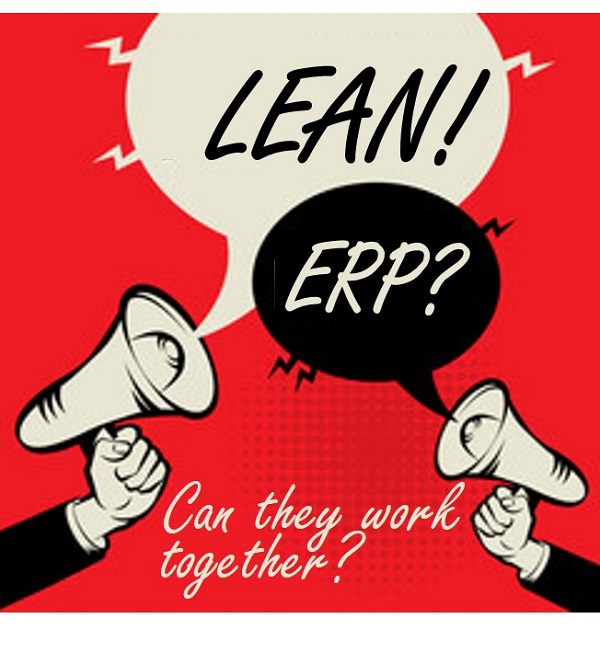Related Articles
Enterprise resource planning (ERP) systems have become near-essential for firms in this era, especially larger ones, and it’s hard to imagine firms functioning without technologically integrating every aspect of their business.
On the flip side, more and more firms are implementing the principles of lean manufacturing, pioneered by Toyota Production System, which is also known as the Kanban principle.
The marriage between lean manufacturing principles and ERP software programs hasn’t been without any incompatibilities, and this has raised issues for manufacturers.
Firms hesitate to go through with changing their principles to a more beneficial one in fears of losing touch with the enterprise on the technological realm.
Other firms have to forego ERPs, seeing no other alternatives, and many have been convinced that adapting ERPs to the Kanban principle is fruitless.
Traditional ERPs contain a planning engine that goes against the Kanban principle.
Here, manufacturers base their levels of productions based on their sales forecast.
Lean VS ERP

These ERPs were built with intentions of mass production in mind, and it lacked the ability to manufacture products only when the inventory required to be replenished.
Hence, these ERPs were not in favor of many manufacturers willing to implement Kanban, who felt as if resources were being wasted keeping details on every inventory item.
They didn’t come in handy – the reports that led up to the sales forecast would often be unconvincing to them.
Some complained that MRP (Material Requirements Planning) data processed by these software programs weren’t always accurate, and trying to fix them up would be a waste of time as they don’t contribute to increasing productivity in plants. Hence, some firms have done quite well with not using ERPs at all.
However, attempts have been made to improve integration between ERPs and this method of management by other firms in quite innovative ways.
Some manufacturers, for example, have found it useful to utilize ERP primarily as a records system, recording orders processed, materials consumed, and finished products shipped, all the while keeping ERP outside the plant.
Others are using “middleware” to bridge the gaps between lean and ERP. One company has succeeded in marrying ERP and lean by ordering a customized ERP and then tweaking it to work with lean on the production floor.
ERPs Coexisting With Kanban
Some firms have kept ERPs separate from the production floor but have utilized them to work as a recording system, hence keeping track of processed orders, material consumption, and product shipping.
Others have purchased auxiliary software programs that are specialized to integrate MRP models with lean management.
As traditional ERPs work with infinite capacity, it makes sense to only use them for communicating with suppliers and consumers, and not use them inside the plant.
However, it has been possible to use traditional ERPs to adjust to lean, albeit in a makeshift way.
This is done with the help of weekly demand leveling, where demand is manually leveled based on actual consumer data, and automated calculations project new demand data and average production for the upcoming weeks.
It is a rather expedient approach, as a logistics manufacturer is required at all times, but it works well to make ERP systems more flexible for lean.
Here, each plant comes up with its own calculation of demand from that consumer data, which determines what the plant builds daily.
ERPs With Lean-supporting Modules
On the other hand, some firms have adjusted a highly customizable open-source software like Odoo to work with Kanban principles.
Software firms like Syncoria specialize in adjusting the ERP to support flow manufacturing and kanban card signaling.
It can be demonstrated that the idea of ERPs representing “push manufacturing” and going against “pull manufacturing” is just a misconception, as advances in ERP technology is becoming more compatible with the tenets of lean management.
Open-source and modular ERP software programs, like Odoo, come into play in this situation.
With firms like Syncoria that specialize in modifying the source code to match the production floor, these ERPs fully adopt the management system.
Then, these ERPs allow salespeople to input orders and send them to the scheduling department, where logistics workers decide between ordering the batch in one go or in phases, depending on the deadline. All of this is done with the aid of ERPs.
Maximizing Customer Value While Minimizing Waste
ERPs can perform a crucial role in supporting Kanban. The key is to make sure that ERP is adding value to your bottom line – less time wasted on analyzing data for its sake, more time invested in production, improvement, and customer service.
Seeing ERP as a powerful diagnostic tool, to find areas that need improvement in your current manufacturing processes will not only support Kanban but also aid in its goal.
Proper implementation is essential: in most cases, manufacturers deal with lean first in order to eliminate waste and achieve optimal manufacturing processes.
Then once all waste has been removed, ERPs can systematize and regulate the streamlined processes and monitor areas for further improvement.
Conclusion
As ERPs failed to adapt to lean management in the past, many harbored the idea that these two were fundamentally incompatible, and still do to this day.
However, advances in technology have begun to challenge this preconceived notion, and many firms have found stable footing in creative and flexible amalgamations of ERP and lean management.
Once a balance is achieved with the aid of firms like Syncoria – that specialize in thoroughly analyzing business data and modifying the ERP accordingly – the combination of ERP and lean becomes paramount.
Based in Canada, Syncoria has been providing business solutions all over the world for over 14 years.
Odoo is one of our ready partners who specialize in integrated business solutions and ERP is one of its specialties.
Your inventory, CRM, accounting, HR and every other need is Odoo’s priority, and three million business owners over the world agree. Feel free to consult Odoo for any business-related questions and estimates.




